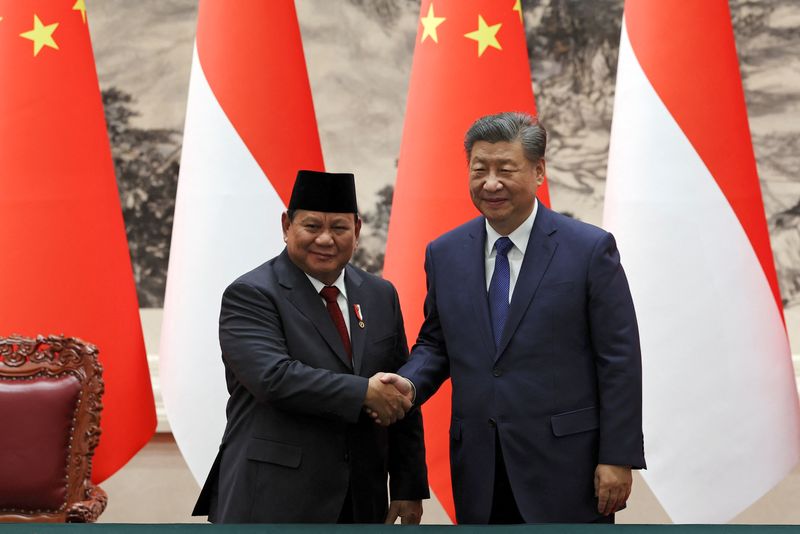JAKARTA (Reuters) -Gao Xiaoyu, the founder of an industrial land consulting firm in Jakarta, has been inundated with calls from Chinese companies eager to expand or set up operations in Indonesia as they try to shield themselves from the United States’ hefty import tariffs.
The 19% U.S. tariff rate for goods from Indonesia is the same as for Malaysia, Philippines and Thailand, and just below Vietnam’s 20%. China’s rates currently exceed 30%.
Powered by Money.com – Yahoo may earn commission from the links above.
But Indonesia, Southeast Asia’s biggest economy and the world’s fourth most populous country, has an edge over its neighbours – the potential of its vast consumer market.
“We are quite busy these days. We have meetings from morning till night,” said Gao, who set up her company PT Yard Zeal Indonesia in 2021 with four employees and now has more than 40.
“The industrial parks are also very busy.”
Indonesia’s economy expanded at a better-than-expected 5.12% in the second quarter, the fastest pace in two years, government data showed last week.
“If you can establish a strong business presence in Indonesia, you’ve essentially captured half of the Southeast Asian market,” said Zhang Chao, a Chinese manufacturer who sells motorcycle headlights in Indonesia, the world’s third biggest market for motorbikes.
Vietnam and Thailand were among the major beneficiaries of the first wave of Chinese companies’ overseas diversification, but amid the latest trade turmoil with the United States, other near neighbours are benefiting.
“There has always been a synergy … with Chinese corporates having the confidence to set up shop with ease in Indonesia,” said Mira Arifin, the Indonesia country head at Bank of America. “Indonesia has a huge talent pool with a dynamic young demographic that encourages foreign investors to rapidly build scale in the country.”
Indonesian President Prabowo Subianto has championed China ties, visiting Beijing in November where he held talks with President Xi Jinping and welcoming the Chinese Premier Li Qiang to Jakarta in May.
Investment from China and Hong Kong into Indonesia was up 6.5% year-on-year to $8.2 billion in the first six months of 2025. Total FDI grew 2.58% over the same period to 432.6 trillion rupiah ($26.56 billion), and the government has said it expects more investments in the second half of the year.
MASSIVE CONSUMER MARKET
To be sure, challenges persist across Indonesia, including regulatory hurdles, bureaucratic red tape, ownership restrictions, deficient infrastructure and the lack of a complete industrial supply chain that made China the “workshop of the world” for decades.
Story Continues
